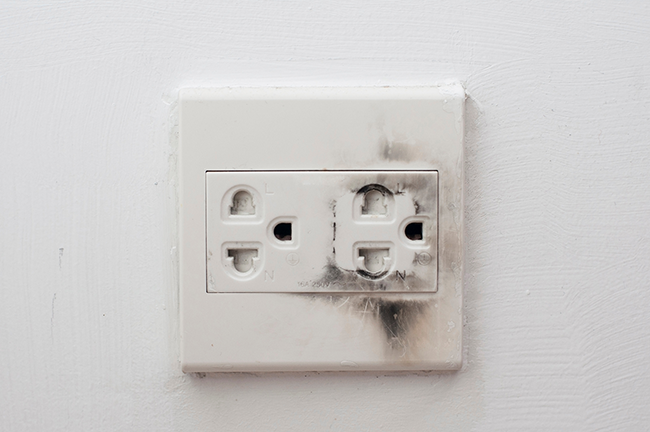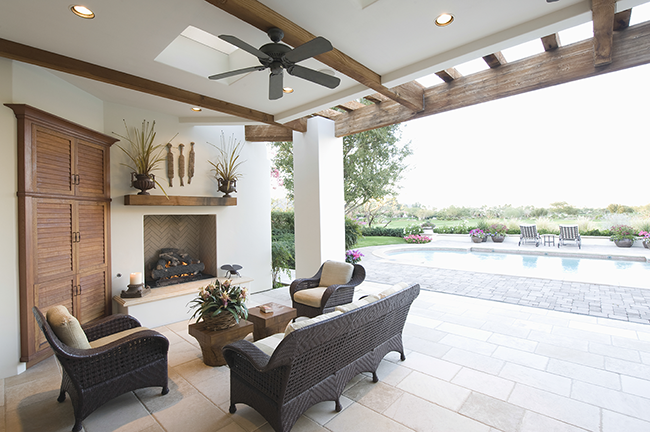What Can I Do To Maintain My Electrical System?
Staying connected during the new normal
Our world is quickly changing, and we are all working hard to find the new normal. Many of us are working and schooling at home so now would be a great time to take a good look at the safety and adequacy of your electrical system. You'll want to maintain your electrical system while everybody is at home.
What Should I Look For?
Are There Enough Outlets?

Maybe you have found that you are lacking electrical outlets or find yourself using extension cords to manage all your technology. Extension cords are not the best option. Did you know that the The National Fire Protection Association does not allow extension cords to be used in place of permanent wiring? Nor should they be plugged into each other. People tend to use them incorrectly and are tempted to overload them causing a fire hazard. Many extension cords that you can buy at the local hardware store are 16-18 gauge and can overload the circuit causing heat and a potential fire. They are a tripping hazard as well.
Are Smoke and Carbon Detectors to Code?
Building codes for new homes built after 1992 require smoke detectors to be interconnected and hard wired. The NFPA states that one should be installed in every bedroom, outside each sleeping area and on every level of your home. There is a huge peace of mind when detectors are hard wired rather than battery operated. Additionally, the smoke detectors outside sleeping areas are required to be carbon monoxide detectors. If you are doing a remodel an electrical permit will require that the house to be brought up to current code.
Get an Inspection!

Electricity demands respect. Most electrical fires are caused by faulty electrical outlets and old and outdated appliances.
With all your family home it would be an important time to make sure your electrical system is working well, says Randy Cole of Rosie on the House Certified Fox Valley Electric. To ensure your electrical system is in proper working order, you'll need to get an electrical inspection on your home. The inspection from Fox Valley Electric offers a detailed look at your system, including:
- Ensure GFI outlets are in proper locations and functioning properly
- Inspect the following: secure breakers, panel terminations and proper grounding at the Panel
- Broken and loose conduits at electrical panel
- Inspect for updated panel schedule
- Ensure smoke detectors are wired and functioning properly and located correctly
- Visual inspection for overloaded extension cords
- Inspect for Arc Fault Protection in bedrooms
- Check outlets for proper operation
If anything is found that needs attention your technician will be able to offer you options.
Consider Upgrades:

- Smart Technology | Smart technology is only as good as its power source. Battery operated doorbells, security lights, security cameras aren't near as reliable as those that are hardwired. You will not have to worry about your devices not working when you need them to due to a dead battery.
- Fans | Your electrician can add a fan on the porch or in the bedroom or living area to help with the room to feel cooler on those 100+degree days.
- Surge protectors | Surge protection prevents an electrical surge from damaging your electronic equipment, telephone and cable lines, and anyone who happens to be talking on the phone at the time of a surge. A surge protector can be installed by your electrician at your panel for whole home protection.If you have power running to your home, it is subject to electrical surges. Electrical surges can happen when a car hits a power line or transformer, when a storm knocks out a power line, or any time the supply of electricity is less than the demand. Surges even occur inside the home when large electrical units are shut off. The excess power left in the line between the unit and the service panel is sent back to the service panel and redirected. That can cause a surge in other electrical units. Each time an electrical surge enters the home it affects all electronic equipment in your home. Surges slowly deteriorate and shorten the life of your equipment. Powerful surges can destroy electronic equipment, like your computer or your expensive new plasma TV. Many manufactures of surge protectors offer a warranty of up to several thousand dollars for replacement equipment if the protector fails.
#StayConnected
###
Photo Credit:
- Shutterstock
related content
Blog: Make This Weekend A DIY Weekend At Your House
DIY Q&A: What Are Surge Protection Devices And How Do They Work?
DIY Q&A: Conduct Monthly Electric Tests To Avoid Fire & Shock
DIY Q&A: Electronic Maintenance - It's A Must Do
Podcast: Where Does Your Power Come From?
